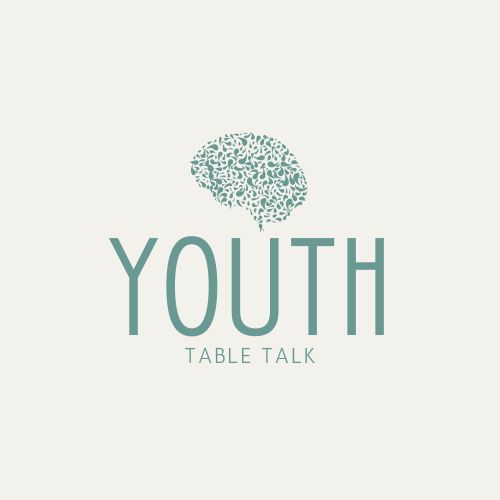The purging disorder is physically and emotionally damaging, whether via vomiting, laxative abuse, or excessive exercise.It’s typical for someone to feel exhilarated and bursting with energy when they begin purging. But over time, the enchantment of the purging disorder wears off, and instead of feeling better, one becomes weak, confused, shaky, queasy, or very hungry, thirsty, and exhausted.
From an emotional standpoint, feeling empty, lonely, depressed, and afraid is typical.
The way to ending the cycle of negativity and solitude is learning to take care of oneself after facing the purging disorder. It is crucial from a medical standpoint and may help you reclaim some of your days so you can operate a little better.
Electrolytes, the minerals that keep you hydrated, support your heartbeat, and are essential for your muscles and energy generation, are lost in large quantities when you vomit.
This has a high risk of harm. Additionally, vomiting’s acidic nature may damage your teeth, raising the risk of a tooth infection and the dangers of heart disease, and even a heart attack due to the illness.
After vomiting, we advise consuming an electrolyte sachet. Additionally, we recommend not brushing your teeth for at least 30 minutes following a purge since the combination of elevated acid and brushing motion rapidly erodes tooth enamel. Instead, rinse your mouth with a solution of bicarbonate soda and water. Do not ingest this solution. Use mouthwash as you choose, and then clean your teeth.
Your blood sugar will be low after bingeing. Therefore, it’s essential to eat well to assist your blood sugar levels to stay stable.
It doesn’t have to be a whole dinner; it might just be some cheese, popcorn, or chocolate. Drink some clean water since you will also be quite dehydrated.
The third piece of advice is to show yourself some kindness and compassion. Does it include sleeping, crying, watching a comedy program, listening to music, writing, sketching, taking a stroll, or dancing? Self-care is critical and may go a long way.
Post purge disorder care is crucial at every step of recovery, from the beginning to the point when you can finally say goodbye to your eating disorder.
Some Suggestions on How to Break the Cycle of the Purging Disorder
Below are six tactics that may help you break the pattern of bingeing and purging.
Avoid Triggers
Figure out what sets off your binge-eating, causing the purging disorder, and learn how to avoid those triggers.Mirrors and scales have been known to bring on episodes of the purging disorder in specific individuals. You may want to consider removing your scale and hiding your mirrors.
Even while it may not be possible to avoid mirrors entirely for the rest of your life, this may be of temporary assistance until you can test yourself in such a manner.
Emotional responses, such as boredom, loneliness, or tension, can also act as triggers. Stress is something that can’t always be avoided, but you can work to limit it or regulate how you respond to it when it does arise.You may also acquire the skills necessary to deal with it more effectively. You may also start to understand feelings such as boredom or loneliness as wants you can genuinely satisfy by engaging in productive activity or making meaningful connections with the people in your life.
Make Use of the Distractions
You could find that the only thing you can think about is how you will binge and purge and when you will be able to do it after meals or during events that trigger your eating disorder. To get through this challenging time, one strategy often suggested to clients is to engage in activities that divert them.
Distractions may manifest themselves in a wide variety of ways, and it’s possible that you won’t know what is most suitable for you until you experiment with a few different approaches.
Many things may be done to pass the time, such as talking to a friend, watching a hilarious movie or television program, doing arts and crafts, going for a stroll, listening to a podcast, playing a game, reading a book, or even going for a walk.
Make sure that the distraction you select is something in which you are interested, as well as something that can keep your mind occupied until the need to binge and purge has gone.
Ask for Support
It might be pretty beneficial to reach out for assistance from loved ones to stay away from binge eating and the purging disorder.You don’t have to bring up the difficulties you’re having in a conversation with them.Think of a few persons in your life who are encouraging you and your recovery and how they can help you. It is an excellent idea to let them know in advance that you will be counting on them as a support person for you. The next time you feel the need, give them a ring.
Just say something like “I could use some support right now.” They may provide you with a diversion by telling you jokes or accompanying you on a stroll, for example.
They may also have a meal with you, challenge you to a game of cards, or be someone willing to listen to you.
What exactly is “Meal Support”? Prepare for the future
Many people going through the recovery process find that having a plan and being consistent are beneficial. It is possible to reduce the stress associated with grocery shopping and preparing meals by creating meal plans and shopping lists in advance.
Additionally, it helps keep you from becoming too hungry, which reduces the likelihood that you may binge eat. A nutritionist is a beautiful choice for someone to assist you in your attempt since they are trained to do so.
When you plan, you should also anticipate and be ready for any triggers you cannot avoid.
Be mindful of your well-being
The ability to look for oneself is a vital skill for healing. This must be learned over time and is not a one-time event. On the other hand, if you start taking care of yourself in several different ways, you’ll probably find that your cravings to binge and purge become less intense over time. And when they appear, you will be in a better position to resist acting upon them because you will have prepared yourself beforehand.
You will have to take care in a variety of ways, including physically (by eating well, exercising moderately, and getting enough sleep), emotionally (by working through any problems you have with your therapist), relationally (by maintaining healthy relationships), spiritually, and in other ways.
The Lessons of Previous Loops
It is normal and anticipated for slips and relapses throughout the healing process of the purging disorder.
This is not always negative, provided that you take the lessons from the prior cycles to heart. When you finally give in to your hunger to binge and purge, many individuals want to behave as if it never happened.
Examine what led up to the bingeing and what you can do differently the next time something like that occurs so that you can break the cycle of bingeing and purging. It is possible that going through this activity with your therapist will prove to be of great use to you.
Treat yourself with kindness. Your ability to recover will improve as you better understand your individual triggers and which coping mechanisms work best for you. Consequently, you will have a better possibility of resisting the need to act on impulses when they arise.
Also, do not be embarrassed to ask for assistance. When you are working on identifying your triggers, establishing more positive coping skills, and maintaining your recovery, getting assistance from a mental health expert may help steer you in the right direction.
Ammad Hafeez Qureshi, a MBA finance with over 10 years of content writing experience, has worked with various firms.
Ammad Qureshi is a passionate writer who uses Youth Table Talk to support the next generation’s success in personal and professional lives, addressing common financial and Mental Health issues.
- Ammad Qureshihttps://www.youthtabletalk.com/author/ammad/
- Ammad Qureshihttps://www.youthtabletalk.com/author/ammad/
- Ammad Qureshihttps://www.youthtabletalk.com/author/ammad/
- Ammad Qureshihttps://www.youthtabletalk.com/author/ammad/
Do you want solutions for your social and psychological problems?
Then Subscribe to our newsletter

